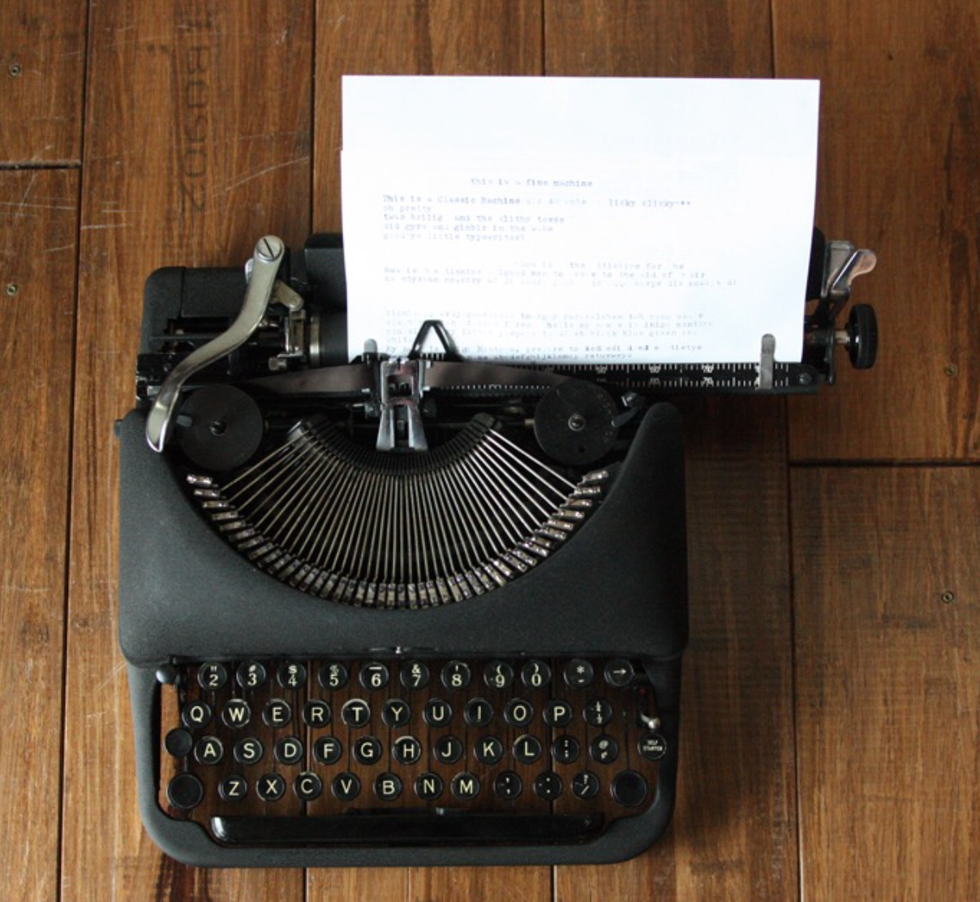“Evenings spent in a mountain hut are among the most sublime and intense that life holds. I mean a real hut, the kind where you seek shelter after a four-, five-, or six-hour climb and where you find few so-called comforts.”
So begins Primo Levi’s 1961 short story titled “Bear Meat”, a tale of a troublesome mountain climb and the raw freedom of being out in the wilderness. It is fiction, but anyone who has read The Periodic Table knows that it is a story that comes from Levi’s own life, a memory of getting lost on a mountain and the personal trial he experienced in his struggle to survive. “Eating Bear Meat” is symbolic of the freedom of “feeling young in the mountains, of being your own master, which means master of the world.” It is getting in trouble, making mistakes, being thrown to the sharks, and coming out of it all more alive than before.
Writers write for many different reasons. Byron wrote to keep himself sane. Joan Didion wrote to know herself and her thoughts. Mary Gaitskill wrote, among other reasons, “to satisfy a basic fundamental need.” For Levi, a survivor of the concentration camp at Auschwitz, writing was a “lucid building” inside which he could come to terms with the bloodiness and the horror he had witnessed and in that sense, become “master of the world.” These experiences were his “bear meat” and the writing was a shelter, a kind of preservative to make them immortal.
I wrote my first poem at the age of six; it was a ridiculous little three-liner about my cat eating my goldfish or something like that. I wouldn’t say I was born with the talent (I’m not sure anyone is), but since then I have called myself a writer, identified as a writer, become a writer. If I had not decided to make writing a significant focus of my life, I would not be who I am now. It has taught me lessons some people never learn. Not least, it has taught me failure is not absolute; but rather, only a stepping block on the way to the final draft (that’s a metaphor for success, guys). It has taught me to deal with my emotions in a healthy manner because I know from experience that in your head something might seem like the end of the world but when you put it down in writing it suddenly doesn’t seem as bad. Writing has taught me to be vulnerable, to take risks. It has taught me to listen and to be observant. In short, I write because I can and I write because I must.
I am a writer.
But then--and I might get a little “new-age hippie” on you, so be prepared--… so is everyone else.
It is so easy to put ourselves into boxes. Somehow, we’re all the same. We’re all humans endowed with reason and creativity, but we’re also either “math and science people” or “artsy people”. I don’t know what about our society or systems of knowledge does this to us, or if it just comes down to a tendency to think in terms of alterity, but it simply isn’t the case. After all, the whole right-brained, left-brained thing has firmly been proved to be myth. You can be whatever the f*ck you want to be.
My point is, though I struggle to calculate tips at restaurants and perform other tasks involving simple math and I will never be a brain surgeon, it’s a matter of practice and my lack of motivation and I are the only things standing in the way of becoming better in those particular areas. In other words, you could be a writer too. And you should, because we have brain surgeons for brain surgery and calculators for the math stuff, but writing is a skill everyone needs. Language is a thing everyone uses. In fact, it’s the only really coherent way we get our ideas known. The written word is truly a miracle of civilization and it is part of what makes us human.
It is, therefore, a skill and a practice I would urge everyone (yes, you too, reader, if you’re out there) to cultivate… not because you want to be the next Ernest Hemingway, move to Spain and become tragically misunderstood, drowning your sorrows in Absinthe and cigarettes. Not because J.K. Rowling is obscenely rich, so hey, maybe you could be too (not likely). Not even because, let’s be honest, poets are sexy.
Instead, write as a tool for self-reflection. Write to articulate the thoughts that come out all jumbled when you try to say them. Write to enhance your communication skills. Write because you’re going to have to anyways, in one way or another, whether for school or your job. Write because it is a way to remove the stress and worry from your mind and put it on paper, which is a much better place for it to be. Write because it fills a void. Write because you need a hobby. Write because you have always been told you have potential. Write because you have never been told you have potential. Write because you are lost. Write because you have found yourself. Write because you have something to say, a part to play in this wild cacophony of voices, that has merit and weight. But most of all, write because you are human, because you have tasted “bear meat” and you want to remember what it was like. Write because most of the time, life is a hard uphill climb and at the end of it, you’re going to want to know what it was all for.




















